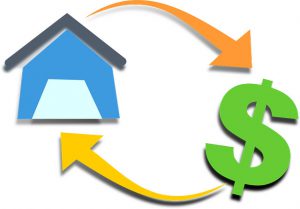By David Heilman, guest contributor | Once viewed as a last resort financial option advertised by aging celebrities on late-night television, reverse mortgages have long suffered from a bad reputation. Now thanks to new qualifications and needed program changes by the U.S. Department of Housing and Urban Development, the “new reverse mortgage” is getting more attention from many and is seen as a viable retirement option.

Heilman
These changes are beneficial to the industry and will help expand the conversation around how best to use home equity in retirement planning.
Available to those age 62 and older, a reverse mortgage or Home Equity Conversion Mortgage, allows homeowners to convert part of the equity in their home into cash without having to sell, give up title or take on a new monthly mortgage payment.
Borrowers can elect to take cash out (to pay off an existing mortgage for example), set up a line of credit for future needs, elect for monthly draws, or a combination of all three. Under the new guidelines, however, borrowers are only allowed to access 60 percent of the loan amount in the first 12 months in most cases.
The balance is repaid when the home is sold, and the homeowners (or their heirs) receive any remaining equity. Because this type of loan is FHA-Insured, should there be any shortfall at the time of sale the homeowners, heirs or estate is not responsible for that amount.
 As more people choose the Charleston area for their retirement homes, our office is seeing more people take advantage of the reverse for purchase option, which allows those looking to purchase a new home to do so with part reverse mortgage financing and part cash down payment.
As more people choose the Charleston area for their retirement homes, our office is seeing more people take advantage of the reverse for purchase option, which allows those looking to purchase a new home to do so with part reverse mortgage financing and part cash down payment.
People used to look at this as a last resort and when all other assets were depleted, but that is usually the worst time to learn about your options. We encourage our clients to consult with their children, financial adviser or other trusted sources and bring us into the conversation so everyone fully understands the loan program.
Homeowners retain title or ownership to their home and are still responsible for property taxes, insurance and homeowners association or condo fees. Part of the new rules include a residual income test as well as review of credit to make sure the borrower(s) have both the capacity and the willingness to pay these important ongoing property charges.
Most banks and credit unions do not offer reverse mortgages, so consumers need to seek out a specialized lender. Be sure to ask about a lender’s certifications and experience because it truly matters when handling a more complex financial product.
David Heilman is the South Carolina branch manager of Franklin Funding Reverse Mortgages and the state’s only Certified Reverse Mortgage Professional. Franklin Funding Reverse Mortgages, A Division of Success Mortgage Partners, is a licensed FHA mortgage banking firm specializing in reverse mortgages for senior homeowners in South Carolina.



 We Can Do Better, South Carolina!
We Can Do Better, South Carolina!
























